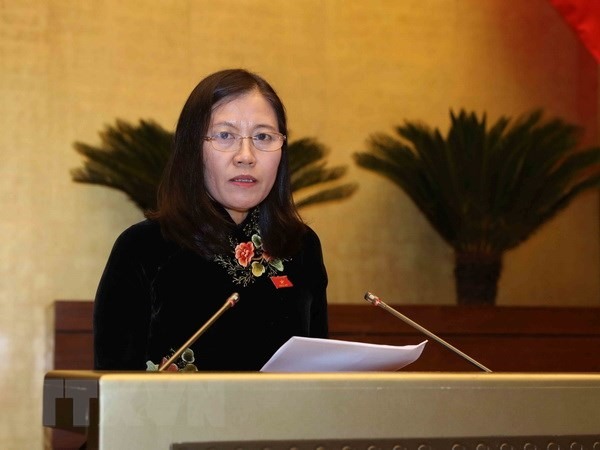 Politics & Law
Politics & Law

A major shortcoming that has been, for years, hampering the country’s effort to fight corruption is the lack of a dedicated agency to monitor and investigate assets amassed by government officials, said the head of Government Inspectorate Lê Minh Khái during the National Assembly’s Judicial Affairs Committee plenary season held on Monday in Hà Nội.
 |
| Some 18,000 government officials will be subjected to asset surveillance with more than 10,000 alone in Hà Nội and HCM City, according to a draft law on anti-corruption by the NA Judicial Affairs Committee. — VNA/VNS Photo Phương Hoa |
HÀ NỘI — A major shortcoming that has been, for years, hampering the country’s effort to fight corruption is the lack of a dedicated agency to monitor and investigate assets amassed by government officials, said the head of Government Inspectorate Lê Minh Khái during the National Assembly’s Judicial Affairs Committee plenary season held on Monday in Hà Nội.
The government chief inspector pointed out that despite millions of asset declaration forms collected there is not yet an office charged with managing and making use of the vast amount of information in asset surveillance, a crucial part in anti-corruption efforts.
To address this, the inspectorate will be entrusted with the responsibility of monitoring changes in assets owned by government officials, in both central government and local offices as stipulated in a draft of the country’s anti-corruption law.
Many deputies expressed their support for the proposal saying that the inspectorate is both well-equipped with technical know-how and experience for the job. They said the inspectorate, which has access to the national database for personal assets and income, must strive to maintain its independence, ensure information security and provide inspectors with rigorous training.
Head of the NA’s judicial study institute Nguyễn Đình Quyền pointed out that asset surveillance is a complicated task with many steps, among which most important is verification. Quyền said at the moment it is being carried out by personnel and organisation departments, who are ill-equipped to perform such a task. Quyền said there is a need for a breakthrough in the form of a dedicated agency for asset surveillance with a focus on legal and operational transparency.
Other NA deputies, however, voiced their concern over whether the inspectorate will be overloaded with the massive amount of work associated with its new role. Some suggested that central agencies can monitor their own subordinate offices, fearing a large-scale recruitment of government inspectors will be required to take on the job, which goes against the government’s mandate to reduce the number of public servants.
Deputy head of the Government Inspectorate, Nguyễn Văn Thanh, reassured deputies saying that should the draft law gain the NA’s seal of approval the inspectorate will transfer many of its responsibilities to the State Audit of Vietnam to secure the manpower required.
Some 18,000 government officials will be subjected to asset surveillance with more than 10,000 alone in Hà Nội and HCM City, according to Thanh. Approximately one-third of the entire government inspectorate will be assigned to asset surveillance and other anti-corruption tasks.
Other changes proposed in the draft law include making asset declaration mandatory for NA deputies, members of People’s Committees, certain ranks within the army and police forces as well as other government positions. On that note, deputies advised that inspectors must focus their work on positions associated with high risk of corruption first before attempting to cover more areas, making certain they took their time to hone their skills and have sufficient resources. — VNS




